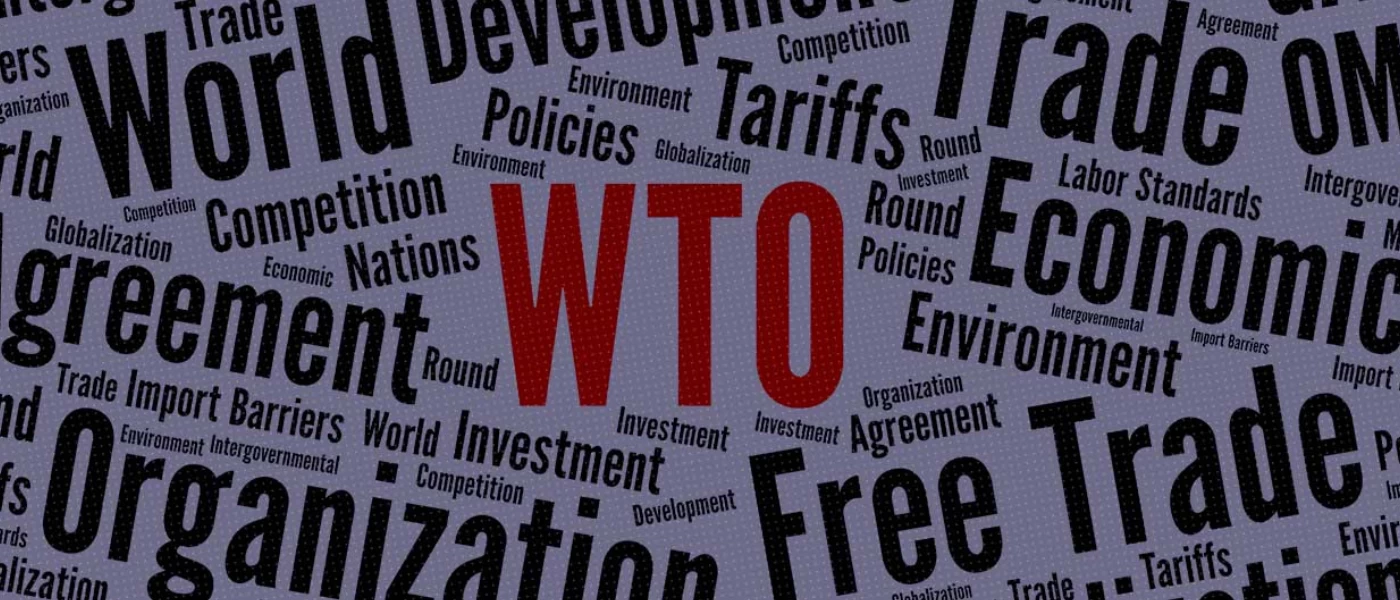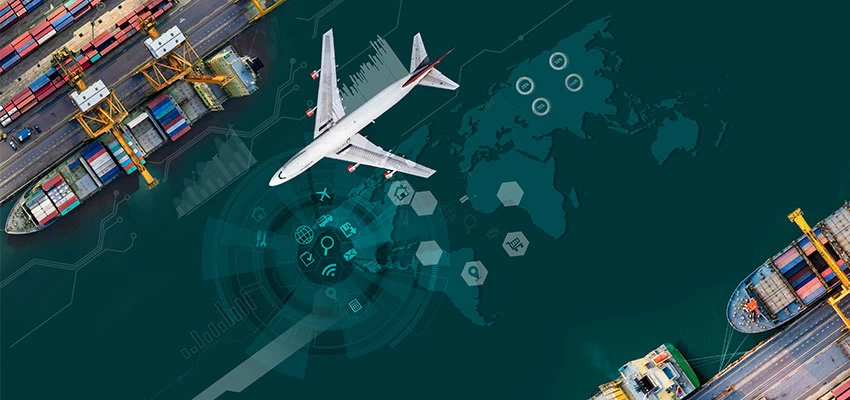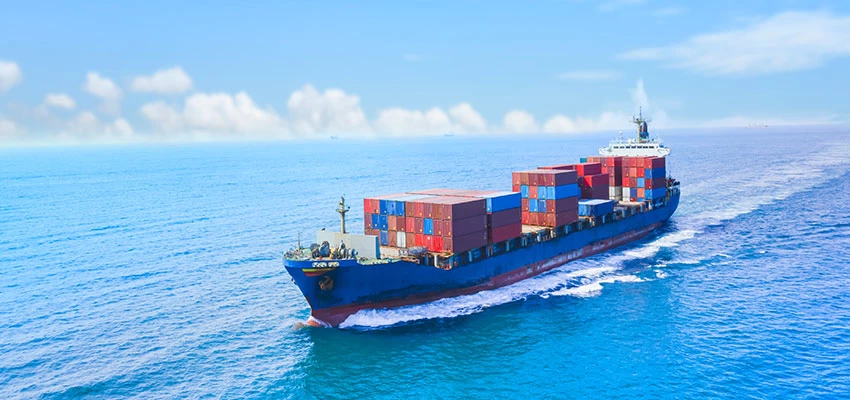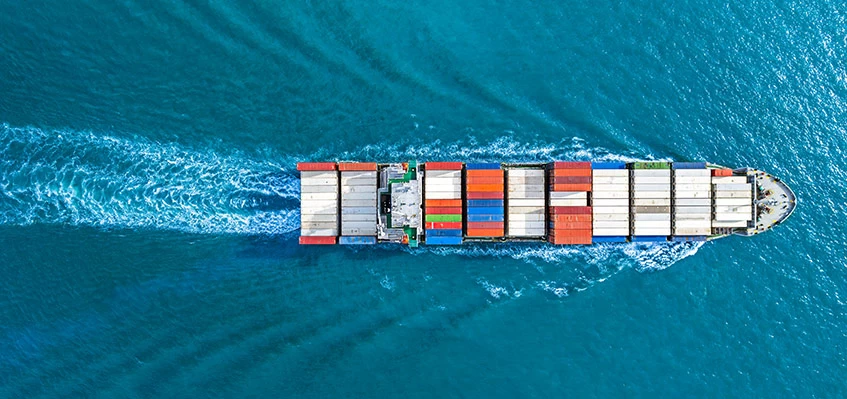Introduction
At the time of writing this article, representatives of 164 Members of the World Trade Organization (‘WTO’) have gathered for the 13th Ministerial Conference (‘MC 13’) in Abu Dhabi, the capital of the United Arab Emirates, to hammer out a deal on international trade issues relevant to the future of the multilateral trading system. Coincidentally, the talks in the Middle East are taking place at a time when the geopolitical climate of this very region is in a turmoil due to the Israel-Hamas war and the attacks on international cargo ships traversing the Red Sea.
For developing countries like India for whom the issue of food security is very important, the talks at MC 13 assume significance given that the legacy issue of a permanent solution for public stockholding is on the table. MC 13 will also be important as other important topics such as the Agreement on Investment Facilitation and the Agreement on Fisheries Subsidies will also be on the table.
This article intends to provide an overview of some of the key issues for negotiation at MC 13 and the importance of these issues for WTO Members.
Agreement on Investment Facilitation and Development
One of the keenly anticipated topics of negotiation will be the Agreement on Investment Facilitation and Development, which contains provisions intended to support facilitation of cross-border investments. The agreement, the text of which was finalized in November last year, is intended by some WTO Members to be included as a plurilateral agreement, which means that the provisions of this agreement will be binding only on those WTO Members who sign this agreement.
While the agreement is seen by some Members as promoted by China to further its belt-and-road initiative, major economies like India and South Africa have firmly opposed the inclusion of such agreements at the WTO citing the absence of an express mandate from the Ministerial Conference.
This difference in viewpoint has reopened the debate on whether the WTO, as a platform for negotiating trade issues, is appropriate for negotiating investment issues. It remains to be seen how negotiations on including this agreement at the WTO will take shape.
Agreement on Fisheries Subsidies
One of the key outcomes of the last Ministerial Conference, MC 12, was the conclusion of the Agreement on Fisheries Subsidies, which was under negotiation for over 15 years till it finally saw the light of the day. Though this agreement is yet to come into force, as two-thirds of the Membership are yet to adopt the agreement, Members have already embarked on the difficult task of negotiating additional provisions such as subsidies for overcapacity and overfishing, special and differential treatment for developing countries, etc.
Given the importance of fishery subsidies for the livelihoods of millions of fishermen, developing country Members need to be guarded in ensuring that the developed countries do not shortchange them in any manner in negotiating additional disciplines under this agreement. Indeed, it is a challenge to press developed countries to commit to disciplining their subsidies for overcapacity and overfishing and allow consensus for developing countries to grant subsidies necessary for the subsistence of small-scale fishermen.
In any case, developing country negotiators should remember the mistakes made concerning the Uruguay Round when negotiating the Agreement on Agriculture that cost them till date, and avoid any such pitfalls when negotiating the agreement on fisheries subsidies.
Permanent Solution for Public Stockholding for Food Security Purposes
A legacy issue from the Doha Development Round that is at the heart of India’s concerns is the permanent solution for public stockholding for food security purposes. Further, this is an issue that is important not just for India but also similarly situated developing countries. Though this issue has been on the negotiating table since 2000, the Membership has unfortunately not been able to achieve any solution to this issue.
However, going by past experience, it is likely that some of the rich developed countries who heavily subsidize their agricultural sector, will continue to remain skeptical of agreeing to any consensus on this issue due to putative concerns on the alleged trade-distorting effect of subsidies for public stockholding.
WTO Dispute Settlement Reform
The WTO’s dispute settlement system has rightly been identified as its ‘crown jewel’. However, since the Appellate Body became dysfunctional in 2019, this crown jewel has lost some of its shine. Since then, several attempts have been made under different umbrellas at the WTO to revive the Appellate Body and also take steps for reforming the WTO dispute settlement.
Given the primacy of dispute settlement for a well-functioning WTO, Members rightly placed reform of WTO dispute settlement (including revival of the appellate mechanism) on the negotiating agenda of MC 12 and also MC 13.
However, given the lack of political commitment in reviving the Appellate Body, particularly by the United States, one must remain cautious in not expecting too much from MC 13 on the issue of the revival of the appellate body. If no outcome is achieved in this regard, it will not bode well for the Membership as a fully functional dispute settlement mechanism is important for the functioning of a rules-based multilateral system at the WTO.
Electronic Commerce
We live in a world where Netflix, Uber, Google Pay, Amazon, and other forms of electronic commerce have become ubiquitous in our lives and significantly transformed our way of living. The Membership seems to have the hindsight on issues concerning e-commerce and international trade when it issued a Declaration on Global Electronic Commerce in 1998. Under this declaration, the Membership agreed to launch a work programme to examine all trade-related issues relating to global electronic commerce.
Under this declaration, the Membership also agreed to continue the practice of not imposing customs duties on electronic transmissions. Commonly referred to as the ‘moratorium’ on electronic transmissions, this particular aspect of the decision was welcomed by certain members of trade and industry. However, since the last two-three ministerial conferences, calls by developing WTO Members to discontinue the moratorium have become very loud.
In fact, at the last Ministerial Conference, it was decided that should MC13 be delayed beyond 31 March 2024, the moratorium would expire on that date unless the Ministers or the General Council take a decision to extend the same. This seems to have set the tone for MC 13 for increased focus to decide on discontinuing the moratorium.
If the moratorium is discontinued, the buck would not stop there. Members will have to develop their internal legal system to be able to levy and collect duties on electronic transmissions. To ensure that there is coherence and uniformity, Members may have to continue to discuss these issues on a collective platform.
Conclusion
Negotiations at the WTO have become diverse and tougher. The challenges at each subsequent Ministerial Conference seem to be getting bigger and more complex than the previous Ministerial Conference. Nonetheless, it would seem important to achieve a positive outcome to break the cacophony created due to the geopolitical turmoil in different parts of the world.
However, given the wide differences between Members on most issues, particularly on critical issues like WTO dispute settlement, permanent solution for public stockholding, etc. that prevailed even before the commencement of MC 13, the Membership needs to be prepared to accept limited or no success on these issues.
Nonetheless, given the importance of other issues like trade and investment, e-commerce, trade and sustainability, etc., the Membership should strive to achieve the maximum possible outcome on these issues so that the WTO continues to remain relevant in the global trade architecture.
[The author is an Associate Partner in WTO and International Trade Division in Lakshmikumaran & Sridharan Attorneys, New Delhi]












